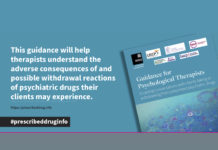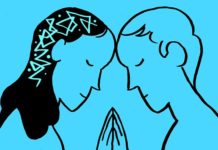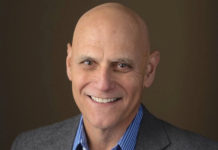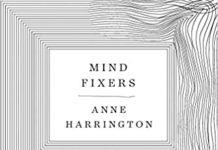Peter Breggin and Michael Cornwall – Stop the Psychiatric Abuse of Children
An interview with Drs. Peter Breggin and Michael Cornwall who discuss their new initiative, Stop the Psychiatric Abuse of Children (SPAC!). SPAC! was formed in response to the introduction of the Monarch eTNS, an electrical stimulation device worn on a child’s forehead at night that was fast-tracked by FDA with little testing.
The Field of Mental Health Has Gone Astray, But We Can Fix It
People should have real choice. The research and knowledge about how to work differently are already there. Now we need politicians and policymakers to force the change and make it happen in the established services. Mad in Norway will be a leading voice in ensuring this change.
Psychological Support for Psychiatric Drug Withdrawal
We discuss the release of guidance which has been specifically written to support UK psychological therapists and their clients in having discussions about taking and withdrawing from psychiatric drugs. The guidance is a collaboration between counsellors, therapists, psychologists, peer support specialists and psychiatrists.
A Tribute to Stephen Gilbert, Warrior Behind Enemy Lines
Stephen Boren, who posted here under the name Stephen Gilbert, passed away November 12 after a battle with cancer. Stephen offered a unique perspective, working as peer support staff at the same hospital where he had once been held as a patient. We will miss his daily presence on MIA.
On Human Rights and Surviving Race: A Conversation with Celia Brown
An interview with Celia Brown: psychiatric survivor, human rights activist, and president of MindFreedom International.
Anthropologists Contemplate the Future Role of Psychiatry
Anthropologists who study the psychiatric field recently had papers published in two highly influential journals. While they both call for or describe reform initiatives, they point us in different directions with regard to the future role of psychiatrists. With a shift in resources, might psychiatry finally get it right?
High Time for Anarchism in Mental Health
Anarchism has much to offer the debate. It can present a clear voice saying: Liberty is not an obstacle for quality treatment, it is rather the very basis of it. Research shows that the anti-authoritarian elements in methods such as Open Dialogue and Stabilizing Homes actually promote a stronger, fuller recovery in patients.
Fear and Belief in “Chemical Imbalance” Prevent People from Coming Off Antidepressants
Researchers interviewed people who were given medical advice to discontinue antidepressants.
Social Relationships Integral to Recovery in First Episode Psychosis
Research finds patients of first-episode psychosis report benefits from social relationships where their personhood is respected.
Abandoned in VA Purgatory — Misdiagnosed, Overprescribed & Fighting for Answers
Today I’ve recovered a semblance of my old life, and I, like millions of others, deserve answers. What have these drugs actually done to us? Everything I’ve learned thus far shows that antidepressants were poorly researched, and society, especially our military service members and veterans, were used as test subjects.
Discrimination Leads to Mental Distress for Gender Diverse People
Researchers seek to identify adaptive coping responses to discrimination for the transgender and gender diverse community.
Mental Health Services Turned My Daughter’s Crisis into a Way of Life
My world turned upside down when my daughter nearly died from a serious suicide attempt. After several years as her caretaker I began to wonder: What can we do to change the way our mental health services are organized so they won't turn a crisis into a way of life for already distressed and vulnerable people?
Steven C. Hayes – A Liberated Mind: How to Pivot Toward What Matters
An interview with Dr. Steven C. Hayes about his recently released book, A Liberated Mind: How to Pivot Toward What Matters, which uses the principles of acceptance and commitment therapy to help readers overcome negative thoughts and feelings, turn pain into purpose, and build a meaningful life.
Functional Medicine: My Path Out of Psychiatry
My blood work indicated a host of issues that had been lurking under the surface of my “psychiatric diagnoses” for years. I’d seen various mental health professionals and none had recommended these types of tests, or stopped to think about any underlying factors, aside from the well-known “serotonin myth.”
Clinical Trials Show Antidepressants “Not Beneficial in the Long Term”
Clinical trials also consistently fail to measure and report long-term harmful effects.
A Doctor Cures His Bipolar Diagnosis Without Psychiatry: Review of ‘I’
I details what happened to Jeffrey Fidel when he quit psychiatric drugs and embraced an alternative, non-medical healing approach — a set of philosophical and spiritual teachings known as the Tao Te Ching and Hua Hu Ching.
Antidepressant-Induced Mania: When My Mind Became a Literal Hell
The amount of anxiety I felt on these medications — and for a couple of years after — was unfathomable. I felt as though I was trapped in an air-tight vat, constantly gasping for breath. And my thoughts were guided by my state of constant worry and panic.
Antidepressant Use Associated With More Violent Suicide Attempts
A new study found that taking an antidepressant medication was associated with a heightened risk of suicide using violent means.
Ben Furman – Understanding and Dealing With Adolescent Rage
A podcast interview with Finnish psychiatrist Ben Furman in which he discusses adolescent rage and how parents can come to understand and deal with teenagers and young adults who are angry and explosive.
Blaming the “Mentally Ill”: This is Hate Speech
As could be expected, in the wake of the mass murders in El Paso and Dayton, we have politicians such as President Trump and others such as E. Fuller Torrey blaming the killings on the “mentally ill.” We have heard this over and over again, and I think it is time to call this out for what it is: Hate Speech.
How “Safe Messaging” Gaslights Suicidal People
Suicide prevention constructs a reality in which the problems of suicide lie within suicidal people. Sanity is constructed around wanting to live, insanity around wanting to die. Within this paradigm, the suicidal person can never be trusted. They are fragile, vulnerable, demanding protection, surveillance, and management.
An “Even-Handed” History of Psychiatry as Damning as the “Polemics”?
Where Professor Harrington's book seems to differ from books that others might call polemics is that she does not attribute nefarious motives to the psychiatric establishment. I worry that she underplays the ways in which the current model causes harm, but I support her suggestion for a retraction of psychiatry's scope.
Benzodiazepine Awareness 2019
A special set of interviews for W-BAD 2019. We speak with Project Manager for W-BAD Rocks of Kindness, Janelle. We also chat with physician and Director of the Benzodiazepine Information Coalition Christy Huff MD and we hear from Stephen Wright MD, addiction specialist and medical consultant to the Alliance for Benzodiazepine Best Practices.
Being-Towards-Suicide
Is it not the very capacity for suicide that makes us human? This capacity, this freedom, of autonomy’s jurisdiction to extend to the outermost seconds of life, namely death, is an innate part of humanity and thus consciousness. Accepting death as a possibility embraces the finitude of our existence.
A Guide to Long-Acting Neuroleptics: Education or Promotion?
The National Council for Behavioral Health has released a new pamphlet titled “Guide to Long-Acting Medications for Providers and Organizations.” By downplaying some aspects of the available science, the pamphlet implicitly acts as a promotional tool for the pharmaceutical industry.

































